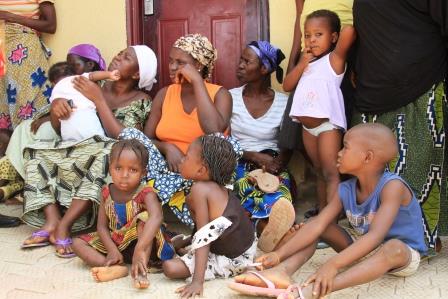By Becky John
Dr Olayinka Ogunbode, a consultant Obstetrician and Gynaecologist at the University College Hospital (UCH), Ibadan, says that 80 per cent of women of reproductive age are prone to fibroid. Ogunbode spoke in Ibadan on Wednesday with the newsmen. He described “fibroid’’ as a benign (non-cancerous growth) of the muscle layers of the womb.
“These growths, sometimes called tumours, are abnormal and may become large and cause severe pains to the female, depending on the location they are, in the womb.
“They can develop within the uterine wall itself or attach to it; they may grow as a single tumour or in clusters.
“Fibroids contain more estrogen and progestrogen receptors than normal uterine muscles do and they tend to shrink after menopause due to a decrease in hormone production,” Ogunbode said.
He explained that most women with fibroid did not have symptoms but some manifested symptoms depending on their sizes and location.
“Some of the symptoms include heavy menses, abnormal uterine swelling, inter-menstrual menses, pressure symptoms and constipation.
“Other symptoms, depending on size include infertility, painful sex, miscarriages, difficult labour and mal-presentation,” Ogunbode said.
The consultant said that diagnosis included family history of the patient, physical examination and ultrasound.
Ogunbode advised women not to go to quacks for treatment of fibroid, adding that seeking professional medical help was the best way to treat it.




